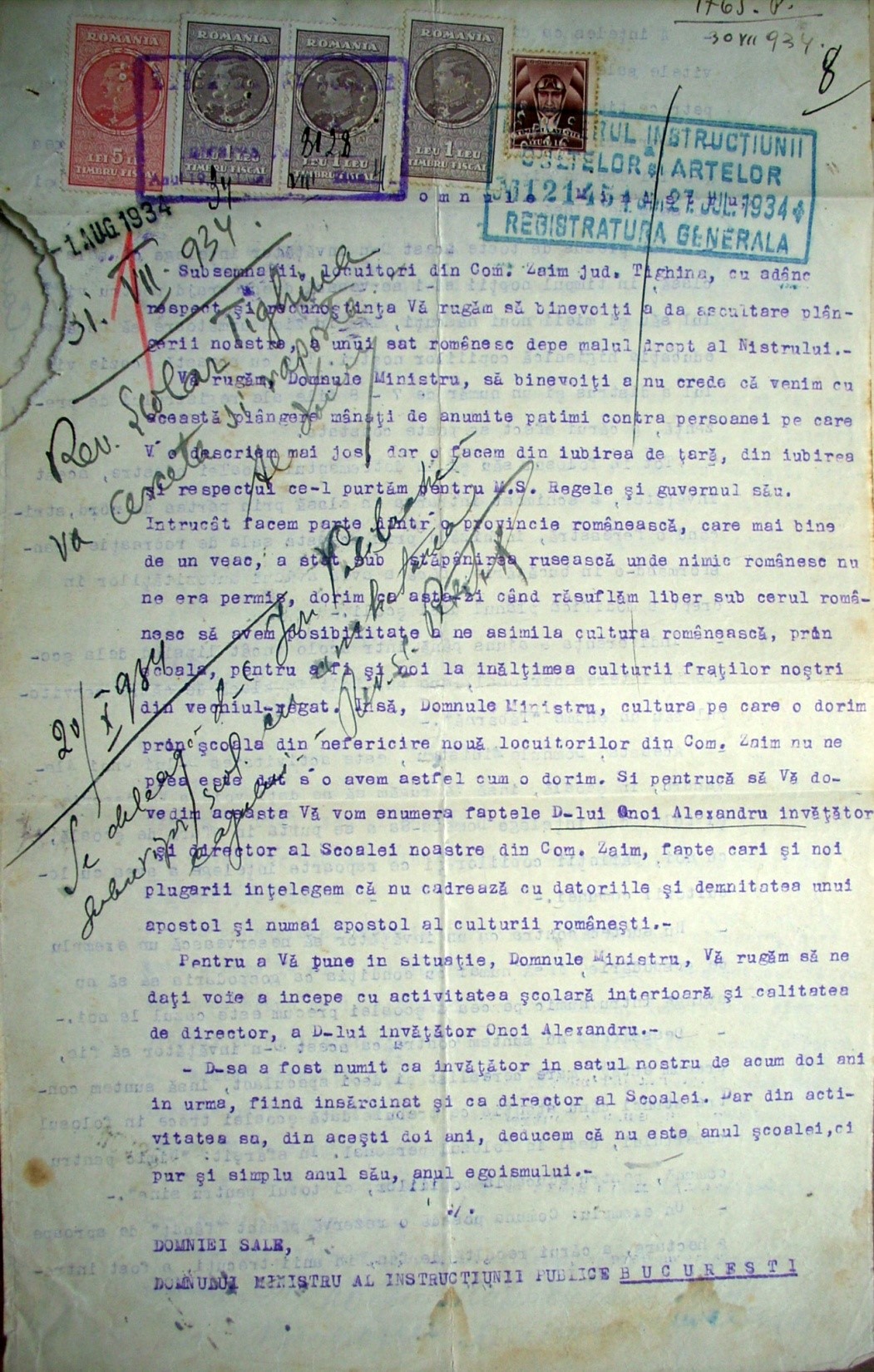Petru Negura (IOS Regensburg): “Popular resistance to linguistic assimilation in the Romanian, Polish and Soviet Borderlands (1918-1940)”
Abstract: This presentation will share some preliminary results from a project that examines the rural inhabitants’ everyday resistance to the nation- and state-building policies promoted through primary education in the border regions of Romania, Poland, and the USSR in the interwar period (1918-1940). This paper focuses on the reactions of Ukrainian and Romanian-speaking peasant communities to nationalisation through school education, as applied by the three states in the border regions. It will explore the responses of pupils and village communities to two major schooling activities: assimilation into the national language and civic and patriotic education. The paper analyses the resistance against these activities displayed through non-enrolment, truancy, dropping out, non-participation, passive attendance, poor school performance, petitioning, speaking the dialect or native language in public and private, practising organic bilingualism, and openly expressing dissatisfaction. The working hypothesis is that a part of the rural population perceived the centre’s schooling and nationalising policies as disruptive at least on three levels: 1) practical rationality, 2) loyalties and identifications, and 3) social solidarity. Existing research provides valuable data on school education in the border regions of the three states. However, the literature features substantial gaps and analytical shortcomings regarding the resistance to mass schooling as a nationalisation policy. Building on theories of resistance, everyday nationhood and social solidarity, secondary literature, and archival and oral history sources, the presentation will seek to contribute to sketching a bottom-up model of nation-building.
Nicolae Drăgușin (CAS Sofia): “Romania and the Concordat with the Holy See. Churches, Nation-building and Legal Controversies (1921-1948)”
Abstract: The Concordat that the post-1918 Romanian state signed and ratified with the Holy See was a highly controversial document that had enormous consequences. There is apparently no other international document in the history of modern Romania to demand almost one decade to be enacted. Nevertheless, the research on this affair is almost non-existent after 1989. The presentation focuses on the Concordat during its first draft (1921) until the unilateral denunciation (1948). Working on a diversity of unexplored primary sources, the presentation aims at introducing the audience to the legal, political, religious debates that the Concordat generated and analyzing the effects it produced upon the nation-building and the society.
https://uni-regensburg.zoom.us/j/62411825548?pwd=Y2pFL3V0aWNEQko2eXphQ2VJMFdTQT09
(Meeting-ID: 624 1182 5548, Kenncode: 519637)

